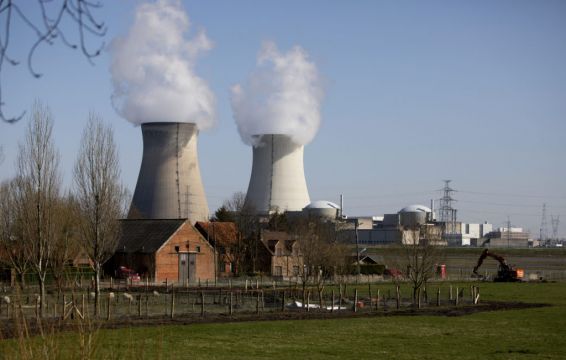The Belgian government has tentatively committed itself to phasing out the country’s existing nuclear power plants by 2025.
It aims to use gas as a bridge toward sustainable energy sources and possible new-technology nuclear options in the future.
Under a complicated compromise agreement reached after all-night negotiations, an assessment will be made of whether Belgium’s energy security can be assured if all seven nuclear plants are shut down.
A definitive decision is expected to be made in March.
“It would not be smart not to have a safety net,” Prime Minister Alexander De Croo said, indicating that two plants could remain open, if need be.
While the government is pushing for the elimination of nuclear plans built with 20th-century technology, it also committed to invest in research for small modular nuclear reactors.
“We say goodbye to the old nuclear reactors and look to nuclear energy of the future,” said De Croo.
A political commitment to phase out nuclear energy dates back to 2003, but successive Belgian governments have waffled to seal the deal. The anti-nuclear Greens are part of the current governing coalition and insistent on seeing action taken.
Nuclear plants release few pollutants into the air, which have made them an option as nations around the world seek clean energy to meet climate change targets. However, their construction and demolition produce large amounts of greenhouse gases.
Opponents have for decades cited the challenges involved with processing long-lived radioactive waste to lobby against new plants. Climate activists also say that relying on nuclear power risks slowing the rollout of renewable energy sources.
Belgium’s ambivalence toward nuclear energy is reflected in a broader European Union debate that has pitted Germany against France.
The 27-nation bloc is expected to decide before the end of the year whether to include nuclear-generated energy among the economic activities that qualify for sustainable investment, a decision with far-reaching consequences for energy provision.







